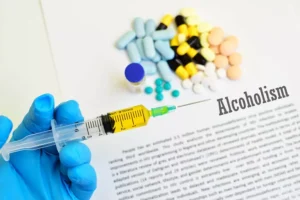Role of Cannabidiol in the Therapeutic Intervention for Substance Use Disorders
Some cannabinoids are more abundant in cannabis and highly studied, while others appear in smaller amounts but […]

Some cannabinoids are more abundant in cannabis and highly studied, while others appear in smaller amounts but are still being studied for potential benefits. Whether looking for pain relief, relaxation, or just a good time, the cannabis experience all comes down to cannabinoids, the chemical compounds in cannabis that interact with your body. Alcoholics Anonymous These tiny but powerful molecules influence everything from mood to appetite, and understanding them can help fine-tune each cannabis experience.

Cannabidiol (CBD): What we know and what we don’t

Following this, TRPV1(−/−) mice do not respond to morphine reward (Nguyen et al., 2014). Adamczyk et al. have further found that SB366791, a TRPV1 antagonist, reverses cocaine-induced reinstatement of previously extinguished cocaine-seeking behavior. Conversely, SB did not reduce cocaine SA, suggesting that TRPV1 activity is not necessary for the reward response but is involved in the mechanisms underlying cocaine relapse (Adamczyk et al., 2012). Taken together, these data demonstrate involvement of TRPV1 channels in response to substance abuse, identifying this as an essential pharmacological target in addiction therapy. Epidemiological investigations have declared that the number of cocaine abusers is increasing (Mena et al., 2013), and cocaine abuse has been identified as a signifcant public health problem impacting roughly 20 million individuals globally (Richards et al., 2016). While many studies have sought to identify efficient remedies for psychostimulant abuse, there is no FDA-approved medicine for psychostimulant abuse disorders, including cocaine, METH, and AMPH (Czoty et al., 2016; Mariani and Levin, 2012).
- This is why it’s important to make sure that your CBD is hemp-derived and not from marijuana, as marijuana can have higher levels of THC.
- Regarding the interaction with CB1R, CBD was first thought to be an antagonist (Thomas et al., 2007; Pertwee, 2008), but recent results suggested that CBD could act also as a non-competitive negative allosteric modulator of CB1R (Laprairie et al., 2015; Tham et al., 2019).
- Interactions may occur with drugs prescribed for sleep, anxiety, depression, pain, seizure medications, and blood thinners.
Is Cannabidiol Addictive?
- CBD is also common in beauty products or marketed as a pain or mood management remedy.
- Research suggests that CBD may influence how the brain responds to serotonin, a neurotransmitter that plays a role in mood regulation.
- However, there are many other forms of epilepsy that haven’t received any research with CBD.
- If you’re impatiently waiting for your brain to bounce back, he recommends exercise to boost neuroplasticity and balance your endocannabinoid system, as well as omega-3 fatty acids found in fish and flaxseed for further cognitive health.
The strongest evidence for its effectiveness is in treating medical conditions including epilepsy. Dravet syndrome and Lennox-Gastaut syndrome (LGS), which typically don’t respond to anti-seizure medications, have been found to respond to CBD. It was found to not only reduce the number of seizures, is cbd addictive but in some cases stopped them entirely.

Better Sleep, Delivered
Twenty-eight years after California became the first state in America to legalize medical marijuana, and five years after AARP’s 2019 comprehensive look at cannabis, there are still plenty of unknowns about the health benefits and risks of all forms of medical cannabis. That category includes marijuana and its compound tetrahydrocannabinol (THC) that gets users high, as well as cannabidiol (CBD), a product derived from hemp plants that contain very low quantities of THC. Also in the category are emerging cannabinoids including CBN and Delta-8 THC, which are synthesized from hemp.
Some research has linked cannabinoids to serious side effects, like depression, increased suicidal ideation, and increased risk of psychosis. Until more research is done, it’s impossible to say exactly how safe or unsafe cannabinoids are. It’s worth noting that the risk of death from overdose with cannabis alone is almost nonexistent.





